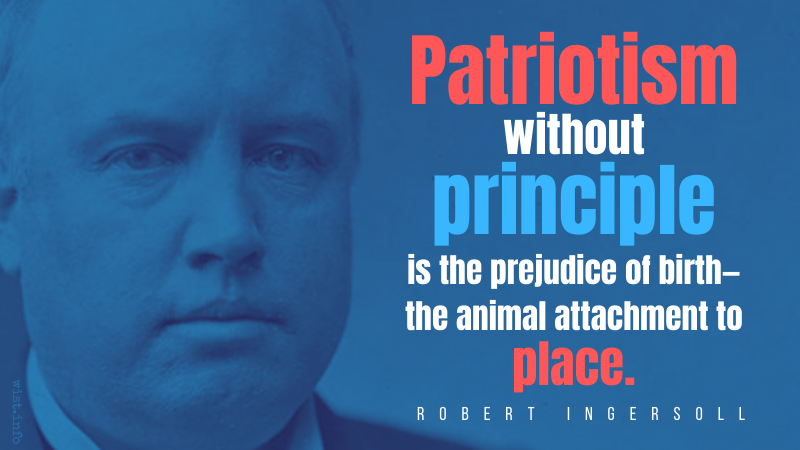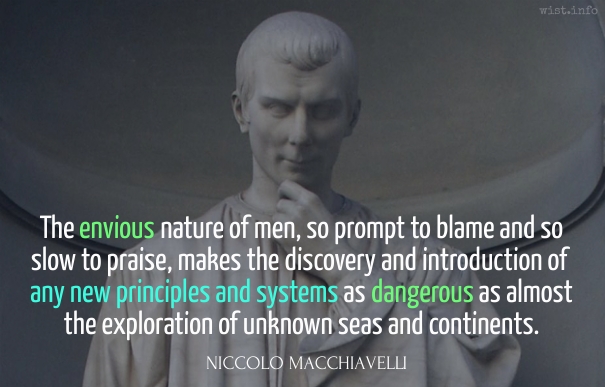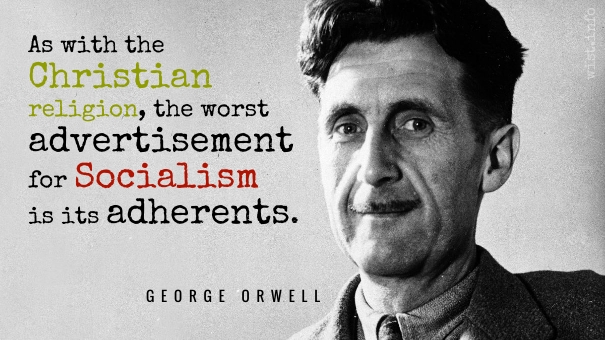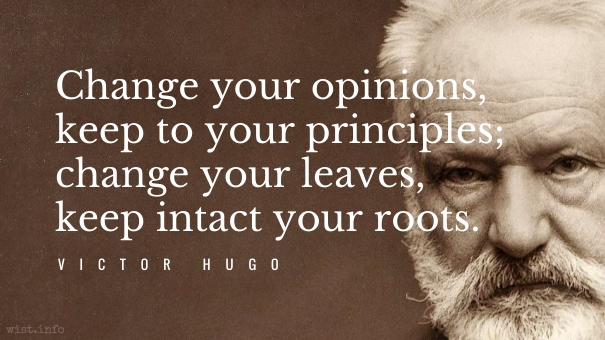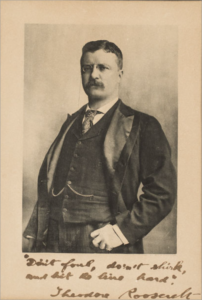And it is not always because of valour or chastity that men are valiant or women chaste.
[Et ce n’est pas toujours par valeur et par chasteté que les hommes sont vaillants et que les femmes sont chastes.]François VI, duc de La Rochefoucauld (1613-1680) French epigrammatist, memoirist, noble
Réflexions ou sentences et maximes morales [Reflections; or Sentences and Moral Maxims], ¶1 (1665-1678) [tr. Tancock (1959)]
(Source)
Introduced in the 4th ed. (1665).
(Source (French)). Alternate translations:
It may be further affirmed, that Valour in Men, and Chastity in Women, two qualifications which make so much noise in the World, are the products of Vanity and Shame, and principally of their particular Temperaments.
[tr. Davies (1669), ¶94]
And we are much mistaken, if we think that Men are always stout from a principle of Valour, or Women chast from a principle of Modesty.
[tr. Stanhope (1694)]
It is not always from the principles of valour and chastity that men are valiant, and that women are chaste.
[pub. Donaldson (1783), ¶446]
It is not always from valor and from chastity that men are valiant, and that women are chaste.
[ed. Gowens (1851), ¶2]
It is not always from valour or from chastity that men are brave, and women chaste.
[tr. Bund/Friswell (1871)]
Men are not always brave because courageous, nor women chaste because virtuous.
[tr. Heard (1917)]
So it is not always courage that makes the hero, nor modesty the chaste woman.
[tr. Stevens (1939)]
It is not always valor which makes men valiant, nor chastity that renders women chaste.
[tr. FitzGibbon (1957)]
And it is not always through valor and chastity that men are valiant and women chaste.
[tr. Kronenberger (1959)]
It is not always because of bravery or chastity that men are brave, and women chaste.
[tr. Whichello (2016)]
Quotations about:
principle
Note not all quotations have been tagged, so Search may find additional quotes on this topic.
The man who has stolen in order never to thieve again remains a thief. Nobody who has ever betrayed his principles can have a pure relationship with life. Therefore when a film-maker says he will produce a pot-boiler in order to give himself the strength and the means to make the film of his dreams — that is so much deception, or worse, self-deception. He will never now make his film.
Andrei Tarkovsky (1932-1986) Russian film director, screenwriter, film theorist [Андрей Арсеньевич Тарковский]
Sculpting in Time (1986) [tr. Hunter-Blair]
(Source)
No society, certainly not a large and heterogeneous one, can fail in time to explode if it is deprived of the arts of compromise, if it knows no way of muddling through. No good society can be unprincipled; and no viable society can be principle-ridden.
Alexander M. Bickel (1924-1974) Romanian-American law professor, constitutional scholar
The Least Dangerous Branch, ch. 2 (1962)
(Source)
Patriotism without principle is the prejudice of birth — the animal attachment to place.
Robert Green Ingersoll (1833-1899) American lawyer, agnostic, orator
Decoration Day Speech, Academy of Music, New York City (29 May 1882)
(Source)
It is compassion rather than the principle of justice which can guard us against being unjust to our fellow men.
Eric Hoffer (1902-1983) American writer, philosopher, longshoreman
The Passionate State of Mind, Aphorism 140 (1955)
(Source)
Cherish what you believe. Don’t job off one single value judgment because it swims upstream against what appears to be a majority. Respect your own logic, your own sense of morality. Death and taxes may be the only absolutes. It’s for you to conjure up the modus operandi of how you live, act, react and hammer out a code of ethics. Certainly listen to arguments; certainly ponder and respect the opinions of your peers. But there’s a point you compromise, and there’s a point all human beings draw a line and say, “Beyond this point it’s not right or just or honest, and beyond this point I don’t move.”
Rod Serling (1924-1975) American screenwriter, playwright, television producer, narrator
Commencement Address, Ithaca College, New York (13 May 1972)
(Source)
When I talk about the death penalty to people, there are a zillion pragmatic arguments to make that the death penalty is more expensive, that you could make mistakes with the death penalty. I try to never use them, because I believe that as soon as I use them, I have dropped what matters to me. Because those arguments are disingenuous. To say, “What if we put an innocent person to death?” I am then telling you that if you can promise me we won’t put any innocent people to death that I’m somehow OK with that, and I’m fucking not. Killing people is wrong. Government shouldn’t fucking do it. End of story.
Penn Jillette (b. 1955) American stage magician, actor, musician, author
Interview by Kahterine Mangu-Ward, Reason (Jan 2017)
(Source)
I have no patriotism, for patriotism, as I see it, is often an arbitrary veneration of real estate above principles.
George Jean Nathan (1892-1958) American editor and critic
Testament of a Critic. Book 1 “Revelation” (1931)
(Source)
Their frail human nature was subjected to a strain greater than it was made for; the fires of greed had been lighted in their hearts, and fanned to a white heat that melted every principle and every law.
Upton Sinclair (1878-1968) American writer, journalist, activist, politician
Oil!, ch. 2 (1927)
(Source)
One person with a belief, is a social power equal to ninety-nine who have only interests.
John Stuart Mill (1806-1873) English philosopher and economist
Considerations on Representative Government, ch. 1 (1861)
(Source)
Often misquoted, "One person with a belief is equal to a force of ninety-nine who have only interests."
To have a reason to get up in the morning, it is necessary to possess a guiding principle. A belief of some kind. A bumper sticker, if you will.
Judith Guest (b. 1936) American novelist and screenwriter.
Ordinary People, ch. 1, opening lines (1980)
(Source)
The highest truth is daiji, translated as dai jiki in Chinese scriptures. This is the subject of the question the emperor asked Bodhidharma: “What is the First Principle?” Bodhidharma said, “I don’t know.” “I don’t know” is the First Principle.
Shunryū Suzuki (1905-1971) Japanese Zen Buddhist master
Lotus Sutra No. 6 lecture, Tassajara, California (Feb 1968)
(Source)
Hell is paved with great granite blocks hewn from the hearts of those who said, “I can do no other.”
Heywood Broun (1888-1939) American journalist, author
“Emma’s Homecoming,” It Seems to Me: 1925-1935 (1935)
(Source)
He took my seat and smiled again, like an affable crocodile. He was probably a very principled man, too. So were they all, all principled men. And women. There were few things more annoying than a visibly principled person. Or more troublesome. Most of the ones I’d met could have used a little uncertainty to dilute their principled-ness.
The envious nature of men, so prompt to blame and so slow to praise, makes the discovery and introduction of any new principles and systems as dangerous as almost the exploration of unknown seas and continents.
I disapprove of what you say, but I will defend to the death your right to say it.
Voltaire (1694-1778) French writer [pseud. of Francois-Marie Arouet]
(Misattributed)
(Source)
The words are not found in any Voltaire and actually belong to historian Evelyn Beatrice Hall, writing as S. G. Tallentyre in The Friends of Voltaire (1906), describing an 1759 incident where Voltaire learned that Claude-Adrien Helvétius' book On the Mind [De l’esprit] had been burned (along with Voltaire's own "On Natural Law") after condemnation by the Paris Parliament and the Sorbonne.‘What a fuss about an omelette!’ he had exclaimed when he heard of the burning. How abominably unjust to persecute a man for such an airy trifle as that! ‘I disapprove of what you say, but I will defend to the death your right to say it,’ was his attitude now.Hall later wrote to a friend that the actual words were her own and ought not to have had quotation marks.
Variations:More information here.
- I wholly disapprove of what you say -- and will defend to the death your right to say it.
- Monsieur l’Abbé, je déteste ce que vous écrivez, mais je donnerais ma vie pour que vous puissiez continuer à écrire.
This is the way of greatness. In the supreme moments of history, terms like duty, truth, justice, and mercy — which in our torpid hours are tired words — become the measure of decision. … The straight and righteous path is the shortest and the surest.
Walter Lippmann (1889-1974) American journalist and author
“The Fascination of Greatness,” Today and Tomorrow (7 Sep 1943)
(Source)
It is loyalty to great ends, even though forced to combine the small and opposing motives of selfish men to accomplish them; it is the anchored cling to solid principles of duty and action, which knows how to swing with the tide, but is never carried away by it — that we demand in public men, and not sameness of policy, or a conscientious persistency in what is impracticable.
America — a conservative country without any conservative ideology — appears now before the world a naked and arbitrary power, as, in the name of realism, its men of decision enforce their often crackpot definitions upon world reality. The second-rate mind is in command of the ponderously spoken platitude. In the liberal rhetoric, vagueness, and in the conservative mood, irrationality, are raised to principle. Public relations and the official secret, the trivializing campaign and the terrible fact clumsily accomplished, are replacing the reasoned debate of political ideas in the privately incorporated economy, the military ascendancy, and the political vacuum of modern America.
C. Wright Mills (1916-1962) American sociologist, academic, author [Charles Wright Mills]
The Power Elite, ch. 14 “The Conservative Mood” (1956)
(Source)
The great principles of right and wrong are legible to every reader; to pursue them requires not the aid of many counsellors. The whole art of government consists in the art of being honest. Only aim to do your duty, and mankind will give you credit where you fail.
Thomas Jefferson (1743-1826) American political philosopher, polymath, statesman, US President (1801-09)
“A Summary View of the Rights of British America” (1774)
(Source)
Addressed to King George III.
If there is any principle of the Constitution that more imperatively calls for attachment than any other, it is the principle of free thought — not free thought for those who agree with us but freedom for the thought that we hate.
Oliver Wendell Holmes, Jr. (1841-1935) American jurist, Supreme Court Justice
United States v. Schwimmer, 279 U.S. 644 (1929) [Dissent]
(Source)
Courage charms us becaue it indicates that a man loves an idea better than all the things in the world, that he is thinking neither of his bed, nor his dinner, nor hismoney, but will venture all to put in act the invisible thought of his mind.
You ask, What makes it worth defending? and the only answer I can give is this: Freedom to write, freedom to read, freedom to own material that you believe is worth defending means you’re going to have to stand up for stuff you don’t believe is worth defending, even stuff you find actively distasteful, because laws are big blunt instruments that do not differentiate between what you like and what you don’t, because prosecutors are humans and bear grudges and fight for re-election, because one person’s obscenity is another person’s art. Because if you don’t stand up for the stuff you don’t like, when they come for the stuff you do like, you’ve already lost.
Neil Gaiman (b. 1960) British author, screenwriter, fabulist
Blog entry (2008-12-01), “Why defend freedom of icky speech?”
(Source)
In short, in life, as in a foot-ball game, the principle to follow is:
Hit the line hard; don’t foul and don’t shirk, but hit the line hard!Theodore Roosevelt (1858-1919) American politician, statesman, conservationist, writer, US President (1901-1909)
“What We Can Expect of the American Boy,” St. Nicholas Magazine (1900-05)
(Source)
Reprinted as "The American Boy" in Roosevelt, The Strenuous Life (1900).
Roosevelt used this general phrasing on multiple occasions, so various forms can be found attributed or associated to him, such as:
- "In life, as in a football game, the principle to follow is: Never flinch. Never foul. Hit the line hard."
[Source]- "Don't flinch. Don't foul. Hit the line hard."
[Puck]- "Don't fowl, don't shirk, and hit the line hard!"
[Autograph]- "Don't flinch, don't fowl, and hit the line hard."
[Speech (1913-07-03)]
Those words, “temperate and moderate,” are words either of political cowardice, or of cunning, or seduction. A thing moderately good, is not so good as it ought to be. Moderation in temper, is always a virtue; but moderation in principle, is a species of vice.
Thomas Paine (1737-1809) American political philosopher and writer
“Letter Addressed to the Addressers on the Late Proclamation” (1791)
(Source)
In matters of style, swim with the current; In matters of principle, stand like a rock.
Every difference of opinion is not a difference of principle.
Thomas Jefferson (1743-1826) American political philosopher, polymath, statesman, US President (1801-09)
Inaugural Address (4 Mar 1801)
(Source)
It is always easier to fight for one’s principles than to live up to them.
Alfred Adler (1870-1937) Austrian psychologist
(Attributed)
(Source)
Comment to friend (1927). In Phyllis Bottome, Alfred Adler: A Biography, ch. 5 (1939)
HAYWOOD: There are those in our own country, too, who today speak of the protection of country, of survival. A decision must be made, in the life of every nation, at the very moment when the grasp of the enemy is at its throat, when it seems the only way to survive is to use the means of the enemy, to rest survival upon what is expedient. To look the other way. Only the answer to that is: Survival as what?
I have been a selfish being all my life, in practice, though not in principle.




